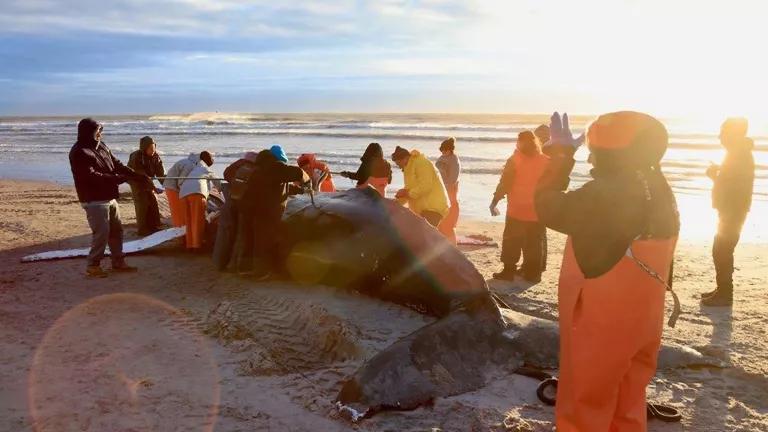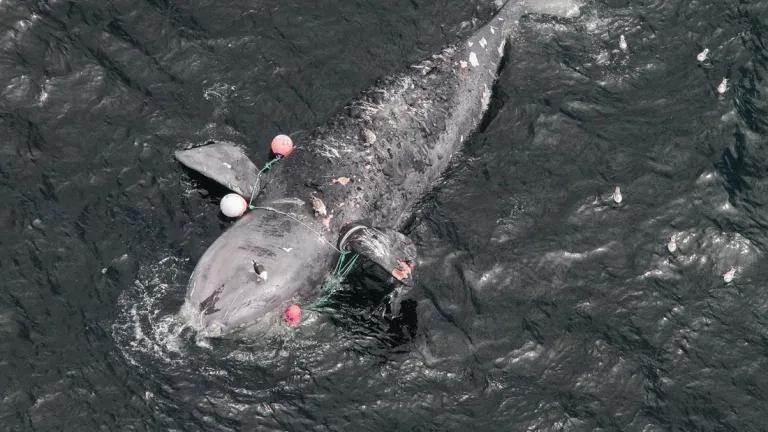Experts: Right Whales are Declining, and Proposed Airgun Blasting Would Jeopardize Their Survival

Is the Obama administration willing to sacrifice an entire species of iconic, endangered whales to the offshore oil and gas industry?
That's the question now before the President after a group of marine scientists, in a public statement released this morning, raised "profound concern" about the impacts of proposed seismic oil and gas prospecting on North Atlantic right whales.
As many of you know, the industry relies on arrays of high-powered airguns to find deposits beneath the ocean floor. The noise these airguns produce—roughly every ten seconds, day and night, for months and months on end—is as loud as explosives, and the effect they have on marine life is profound. Seismic surveys are known to silence great whales across vast stretches of ocean, to displace fish over areas the size of small states, and to generally transform the world of sound that countless marine species depend on for survival.
Enter the right whale, one of the most critically endangered whales on earth. Once considered the "right whale" to hunt, the species was virtually extirpated from the Atlantic, and despite the global moratorium on whaling, it has not recovered. For right whales, seismic blasting represents a major stressor and a source of widespread disruption—a threat to their ability to communicate, to breed, to maintain bonds between mothers and calves. And, if approved by the administration, seismic ships would run up and down the east coast, from the New Jersey border to central Florida, which is where much of the species lives.
According to the scientists' statement released today, all of that activity poses an existential threat to right whales. The scientists call attention to new data showing that the right whale population, far from recovering, is now declining thanks to all the human industry already occurring in east-coast waters. And they conclude that introducing seismic surveys "may well represent a tipping point for the survival of this endangered whale, contributing significantly to a decline towards extinction." Seismic, they say in short, "would jeopardize [the species'] survival."
The statement is signed by some 28 marine biologists with particular expertise on the right whale, from such institutions as Cornell, Duke, the New England Aquarium, Wildlife Conservation Society (the conservation arm of the Bronx Zoo), UNCW, and Woods Hole Oceanographic Institution. For right whales, it doesn't get much more authoritative than this.
Last month the administration announced that it would withdraw the Atlantic from offshore oil and gas leasing for the next five years, but that hasn't stopped the seismic industry. Companies are continuing to seek federal permits to shoot some 90,000 miles of east-coast seismic during the first year of exploration alone, repeatedly covering the same areas in an environmentally heedless exercise. And thus far the Bureau of Ocean Energy Management, the successor agency to the one that blithely approved the Deepwater Horizon, has shown no sign of putting on the brakes. Unless the east coast is permanently withdrawn from leasing, unless seismic permitting is halted, industry pressure to blast and drill will continue.
Close to one hundred coastal communities are adamantly opposed to Atlantic seismic; a bipartisan group of representatives has called for a halt to it; and the fishing community has weighed in strongly against. Now the scientists have shown once more how high the stakes may be. You have to wonder what the Obama administration is thinking.



